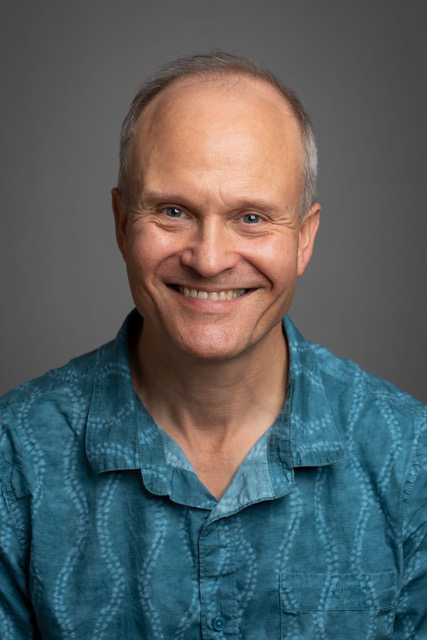Professor of Botany & Fellow of the Wisconsin Institute for Discovery
College of Letters & Science l Department of Botany
Hometown: London, England
David A. Baum is Professor (and former Chair) in the Botany Department at the University of Wisconsin-Madison, where he conducts research in evolutionary biology, plant genetics, and the origin and early evolution of life. He obtained an undergraduate degree in Botany at Oxford University, a Ph.D. in Population and Evolutionary Biology from Washington University, and then conducted postdoctoral research at the University of Wisconsin. He served on the faculty of the Department of Organismic and Evolutionary Biology at Harvard University, earning tenure in 2000, before returning to the University of Wisconsin in 2001. Baum has published two books and >120 research publications and been awarded an Alfred P. Sloan Foundation Young Investigator Award, an NSF Career Award, a John Simon Guggenheim Foundation Fellowship, and was elected Fellow of the American Association for the Advancement of Science. He teaches courses in introductory biology and evolution and was honored with the UW-Madison’s Chancellor’s Distinguished Teaching Award in 2015.
Talks:
Studying the origins of life on Earth (and other worlds)
Can the origin of life on Earth, which occurred some 4 billion years ago, be subjected to scientific inquiry? In this talk I will describe my personal journey from a biologist studying modern (plant) life to somebody trying to solve what is often seen as science’s greatest remaining mystery: How can chemistry become organized into systems capable of adaptive evolution and (eventually) giving rise to complex cells and organisms? I will summarize our science and why I think we are so close to understanding the origins of life. This research not only helps guide the search for life elsewhere in the universe but is also critical for explaining the existence of beings capable of questioning their own existence.
Darwin and The Tree of Life
Charles Darwin is most famous for proposing evolution by natural selection, but he is equally important for recognizing that living organisms are all connected as branches of the “Great Tree of Life.” Over the last two decades scientists have come to appreciate that understanding the tree, “tree thinking,” is essential to understand the natural world and humanity’s place in it.
The Evolution of Cellular Complexity: From the Inside-Out
Arguably the most important evolutionary event in the history of life on earth was the origin of complex, eukaryotic cells, such as found in animals, plants, and fungi. These cells have various internal membrane-bound structures, including the nucleus, which houses the DNA, and mitochondria, which generate most of the cell’s energy supply. Biologists have long puzzled over the origin of these cellular features. Many theories have been proposed, all of which assume that an ancestral, simple cell internalized membranes and evolved the nucleus and other structures inside the original cell body. As an undergraduate student I dreamt up an alternative theory which, literally, turns the existing model “inside out.” Instead of creating a nucleus within the ancestral cell, I think that an ancestral cell, corresponding to the nucleus, created an outer compartment in the course of interacting with extracellular bacteria. I recently began working with a cell biologist on this theory and find that it fits the available information surprisingly well. This well illustrates the principle that sometimes naive individuals can have valuable scientific insights.
Baobabs: Magnificent Monstrosities of the Vegetable Kingdom
Baobab trees, which are native to Africa, Madagascar, and Australia are among the world’s most remarkable plants. As well as being perhaps the most long-lived and massive trees, they have diverse interactions with animals and humans throughout their range, including a complex pollination system. The speaker will share his insight from more than 30 years of research into these botanical marvels.
Videos:
Additional Resources:
